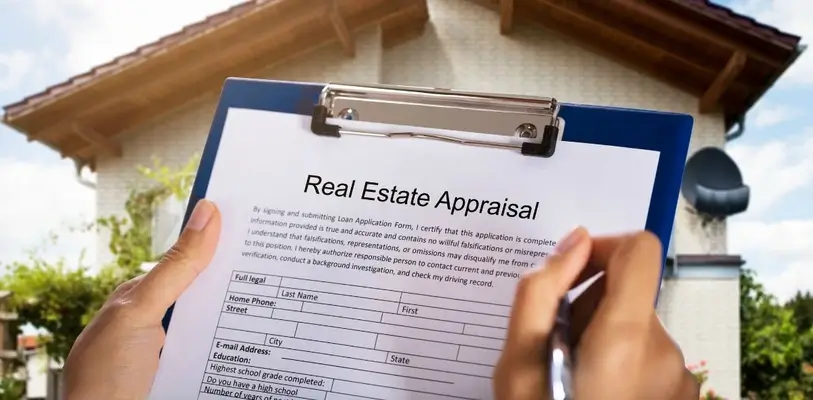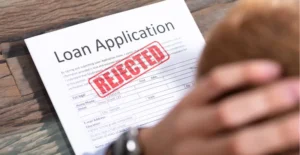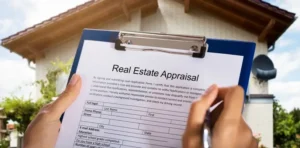In a rapidly evolving real estate market, veterans using VA loans often encounter appraisal gaps when property values come in lower than expected.
These gaps can derail a home purchase, especially in hot cities like Austin or Denver, where bidding wars spike prices beyond comparable sales data.
This guide offers a deep dive into the VA appraisal process, explaining how to prepare for potential shortfalls and navigate solutions—such as the Tidewater Initiative, Reconsideration of Value (ROV), and negotiating seller concessions.
Learn how to work with experienced professionals to confidently approach your VA loan, despite the challenges of a competitive market.
In this Article
Why VA Appraisal Gaps Matter
In fast-moving real estate markets—whether you’re in hot spots like Austin, Denver, or coastal cities in California—rising home prices often outpace appraised values. This gap can be especially problematic for veterans using a VA loan. VA loans require an appraisal to protect both you and the lender, ensuring the property meets Minimum Property Requirements (MPRs) and is safe and structurally sound. However, in a seller’s market, fierce competition leads to bidding wars, which can inflate offer prices far beyond comparable sales data. When a low VA appraisal disrupts your contract, you might need additional cash to close, a renegotiation, or an alternative plan like appealing the appraisal with the VA.
What Is a VA Appraisal Gap?
A VA appraisal gap occurs when the appraised value of a home financed through a VA loan is lower than the agreed-upon purchase price. In a multiple-offer environment, sellers frequently receive bids that surpass recent sales figures. Appraisers use recent comparable sales (comps), property condition, and local market data to assign a value. The gap is the difference between that appraised value and your accepted offer.
Understanding the Tidewater Initiative
The Tidewater Initiative is a VA-specific process that gives all parties—borrowers, agents, and lenders—an early warning when the appraisal might come in low. Before the appraiser finalizes the value, they notify the lender that the appraised value may not meet the purchase price. During this Tidewater period (usually 48 hours), you and your real estate professional can submit additional comparable sales or market data to support a higher value. It’s a critical step in how to deal with a VA appraisal gap because it allows you to potentially bridge the difference before the appraisal is finalized.
Key Factors VA Appraisers Consider
- Comparable Sales (Comps): Appraisers review recent local sales of similar properties.
- Property Condition & MPRs: The VA requires the home to be safe, structurally sound, and free of major defects.
- Market Trends: Neighborhood popularity, median sales prices, and economic factors can influence the final figure.
- Unique Features: Home upgrades, lot size, or special amenities may positively affect value if they align with comps.
How Market Conditions Affect VA Appraisal Gaps
The prevalence of appraisal gap VA loan scenarios can vary based on whether it’s a buyer’s market or a seller’s market.
Seller’s Market
- Low Inventory and High Demand: Bidding wars drive offer prices above what recent comps show.
- Shorter Time on Market: Homes sell quickly, reducing updated comps for appraisers to reference.
- Competitive Pressure: Buyers may waive contingencies or agree to cover gaps, which can put VA borrowers at a disadvantage.
Buyer’s Market
- More Available Listings: Sellers have less leverage to inflate prices, reducing the risk of a low appraisal.
- Negotiation Advantage: Veterans can often ask for seller concessions or price reductions if the appraisal is low.
- Longer Time on Market: Appraisers have more recent and stable data to compare, decreasing the likelihood of a gap.
Where Appraisal Gaps Are Most Common
Appraisal gaps tend to be more prevalent in rapidly growing metropolitan areas. Below is a snapshot of how different regions vary in VA appraisal gap frequency, based on local real estate reports and anecdotal evidence from veteran homebuyers.
| City/State | Market Condition | Estimated Appraisal Gap Frequency |
|---|---|---|
| Austin, TX | Seller’s Market | High (15-25%) |
| Denver, CO | Seller’s Market | High (10-20%) |
| Raleigh, NC | Balanced | Moderate (8-15%) |
| Omaha, NE | Buyer’s Market | Low (5-10%) |
Note: These figures are rough estimates based on regional housing data and conversations with VA-savvy real estate agents.
Common Reasons Veterans Face Appraisal Gaps
- Strict VA Requirements: VA Minimum Property Requirements and a more conservative valuation focus can lead to a low VA appraisal.
- Fast-Rising Prices: Competitive offers often outpace actual market data.
- Seller Bias: Some sellers still believe VA financing is slower or riskier, leading them to choose conventional or cash offers.
- Limited Comps: In rapidly shifting markets, older sales data may not reflect current property values.
How to Avoid Appraisal Gaps with a VA Loan
Avoiding a low appraisal in a red-hot housing market can be challenging. Still, proactive measures can help:
- Use the Tidewater Initiative: Stay informed about the possibility of a low appraisal and be ready to provide additional comps.
- Work with a VA-Savvy Realtor: An agent who understands VA loans can help craft offers and gather relevant data quickly.
- Focus on Fair Offers: Making reasonable bids aligned with recent comps can reduce the risk of an extreme appraisal gap.
- Request a Pre-Appraisal: In some cases, you can hire a professional appraiser early to estimate market value.
Potential Solutions for Veterans Facing Appraisal Gaps
When a gap arises, you have multiple avenues to explore:
1. Consider a Different Loan Type (If Feasible)
While the VA loan is typically the best option for veterans due to its zero-down feature, some borrowers opt for a conventional loan when faced with large gaps. This approach may work if you have sufficient funds for a down payment and meet the credit requirements. However, you risk losing key VA benefits like no down payment and potentially lower rates.
2. Negotiate Seller Concessions Beyond the Purchase Price
Sellers can sometimes help bridge the gap by agreeing to seller concessions—such as covering closing costs or other expenses—so you can reallocate your cash toward the difference in the appraised value. This strategy can be more appealing if the seller wants a quick, smooth transaction.
3. Down Payment Assistance Programs
Several state and local agencies offer down payment or closing cost assistance. Although VA loans already minimize out-of-pocket expenses, these programs can free up funds to cover an appraisal gap or other unexpected costs. Check with your lender or local housing authority for specific programs in your area.
Strategies to Overcome VA Appraisal Gaps
If you find yourself short on the property’s appraised value, here are proven methods to bridge the difference without losing the deal.
- Include an Appraisal Gap Clause: This clause states how much of a gap you’re willing to cover in cash, making your offer more competitive.
- Request a VA Appraisal Reconsideration of Value (ROV): Submit recent comps or evidence of home improvements to the VA appraiser through your lender. While not guaranteed, this can raise the appraised value.
- Negotiate a Price Reduction: If the seller truly wants to close, they may be open to lowering the price to align with the appraisal.
- Increase Your Cash Reserves: Personal savings, gifts, or secondary financing (where allowed) can help you meet the gap.
- Target Areas With Less Competition: Expand your home search to surrounding neighborhoods or suburbs to avoid fierce bidding wars.
Real-World Examples
“I was helping a Marine Corps veteran in Sacramento,” says Jane Parker, a VA-experienced real estate agent. “The appraisal came in $20,000 under the contract price. Through the Tidewater Initiative, we showed recent comparable sales that weren’t in the original report. The final value increased by $10,000, and the seller reduced the price by $5,000. My client covered the remaining $5,000 gap with savings. It was a real team effort, but it worked!”
Common Misconceptions About VA Appraisals
| Myth | Reality |
|---|---|
| VA Appraisals Always Come in Low | While VA appraisals are conservative, they often match market value if correct comps are available. |
| Sellers Hate VA Loans | Many sellers welcome VA offers, especially when buyers are pre-approved and have strong financials. |
| No Recourse for Low Appraisals | The Tidewater Initiative and ROV process allow buyers to contest or clarify the value. |
Steps to Request a VA Appraisal Reconsideration of Value (ROV)
| Step | Action |
|---|---|
| 1. Gather Evidence | Collect recent comparable sales, photos, or records of improvements that support a higher value. |
| 2. Submit Documents | Provide these to your lender, who will forward them to the appraiser or the VA. |
| 3. Wait for Review | The appraiser or VA will re-examine the property value based on the new data. |
| 4. Receive Final Decision | An updated appraisal report may raise the value, leave it unchanged, or rarely, lower it further. |
Frequently Asked Questions (FAQs)
1. What is a VA appraisal gap?
A VA appraisal gap happens when the appraisal value is lower than your purchase price, requiring additional cash or renegotiation.
2. Why do veterans face appraisal gaps more often?
Veterans often rely on VA loans, which have stricter appraisal guidelines. In hot markets, these conservative valuations can lag behind offer prices.
3. How to deal with a VA appraisal gap effectively?
Use the Tidewater Initiative, request a Reconsideration of Value (ROV), consider an appraisal gap clause, or negotiate with the seller to share costs.
4. What to do if VA appraisal is low and I can’t cover the gap?
You may renegotiate the purchase price, explore down payment assistance, switch loan types, or walk away if no other option is feasible.
5. How to avoid appraisal gaps with a VA loan in a seller’s market?
Make informed offers based on comps, work with a VA-savvy realtor, keep extra funds on hand, and leverage the Tidewater Initiative.
6. What is a VA appraisal reconsideration of value?
The ROV process allows you to submit evidence of higher market value to the VA appraiser for a potential adjustment of the final appraisal.
The Bottom Line
VA loans provide veterans with considerable advantages, from zero down payment to competitive interest rates.
However, in a competitive market, a low VA appraisal can disrupt even the most well-prepared plans.
By understanding the Tidewater Initiative, leveraging negotiation strategies, exploring down payment assistance programs, and requesting a VA appraisal reconsideration of value when necessary, you can mitigate the risks of veterans appraisal problems and close on your dream home.
If you’re facing an appraisal gap VA loan issue, consider partnering with a lender experienced in VA loans and a real estate agent who knows how to navigate these challenges.
Learn more about VA appraisals from the Department of Veterans Affairs


















